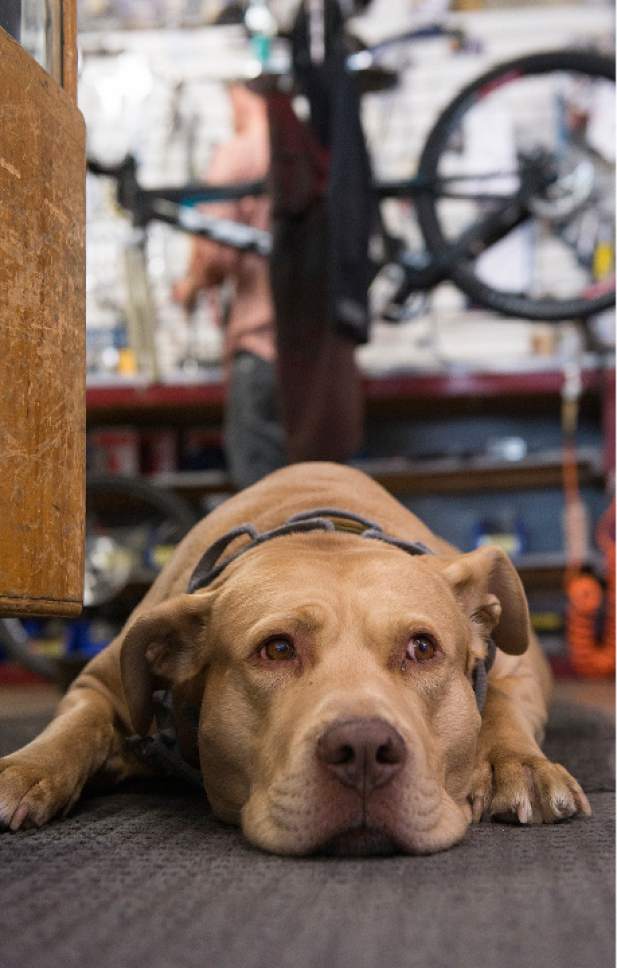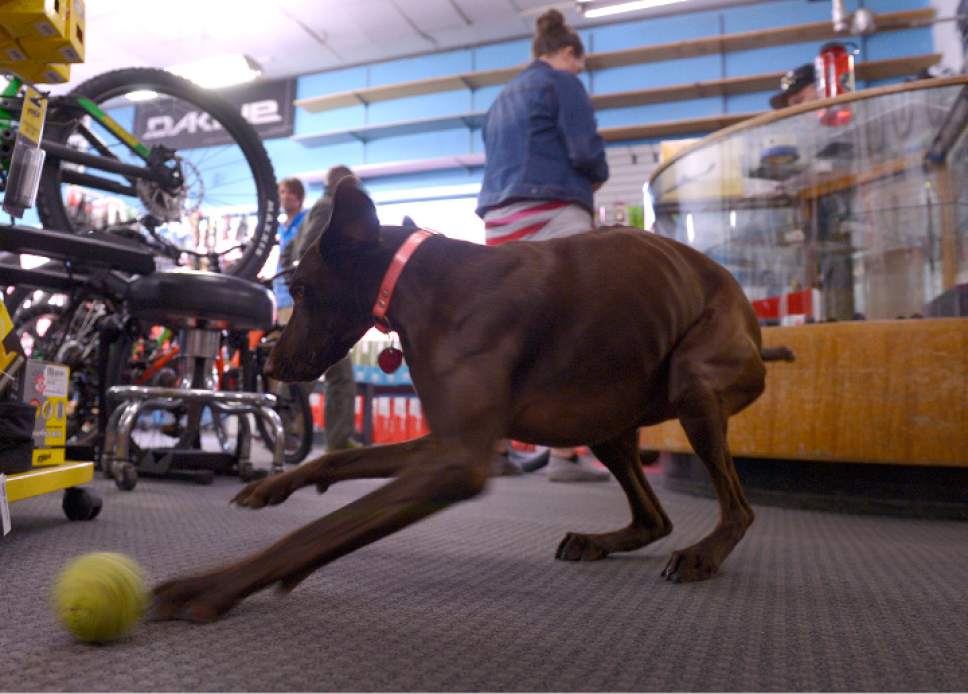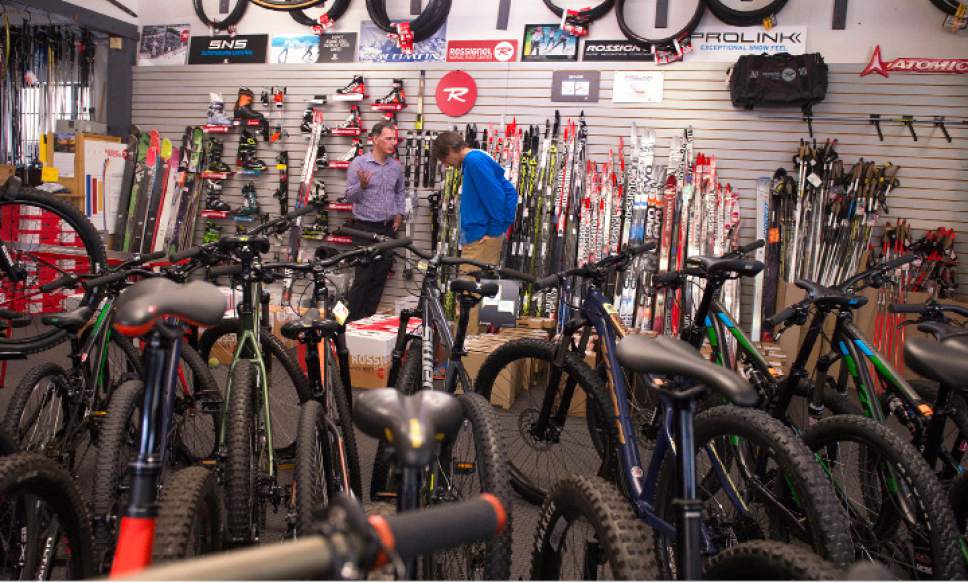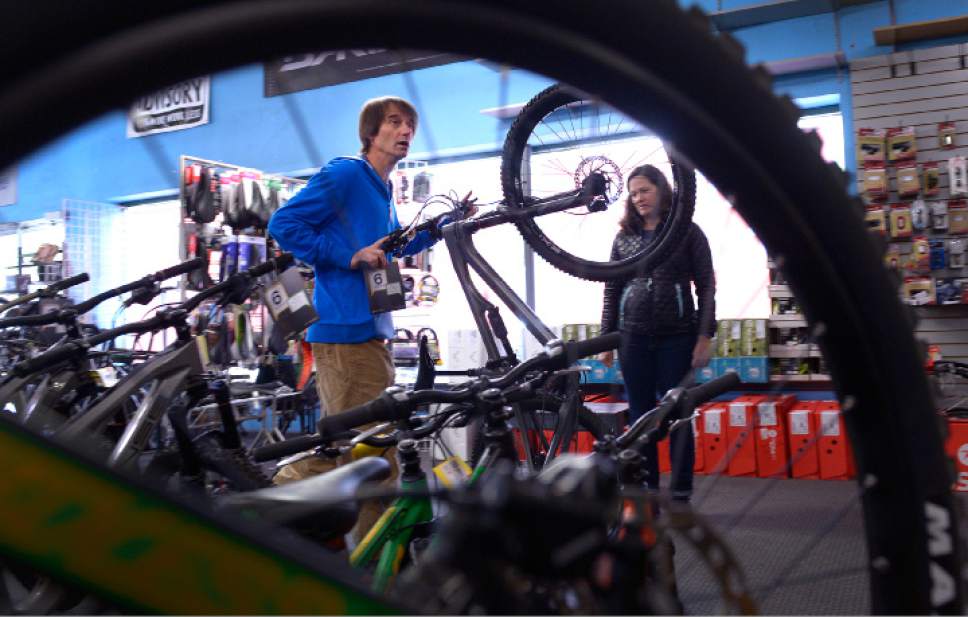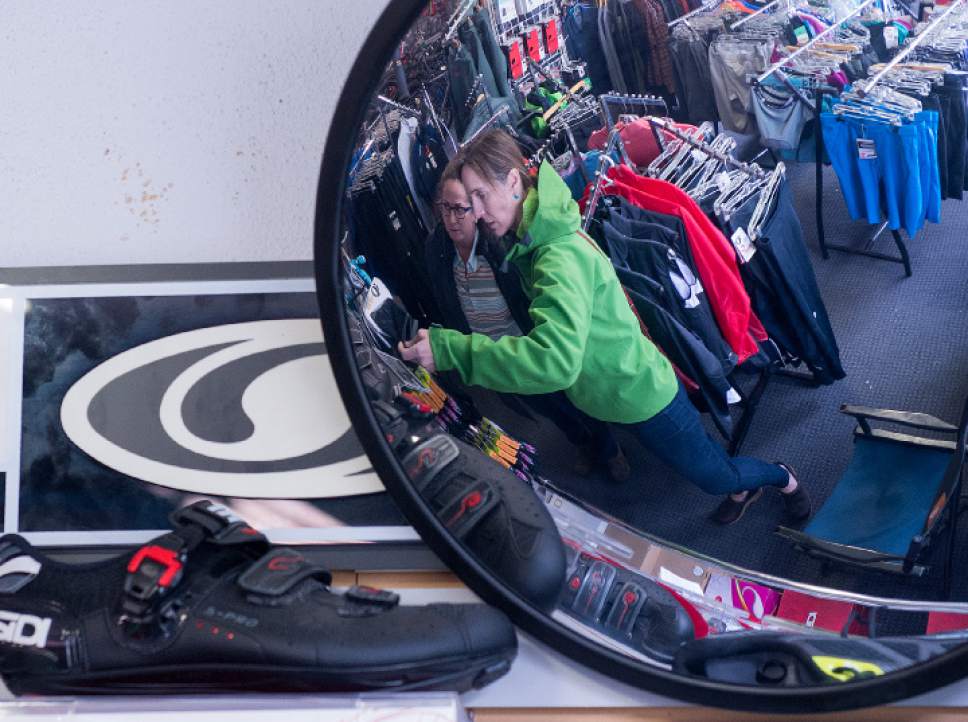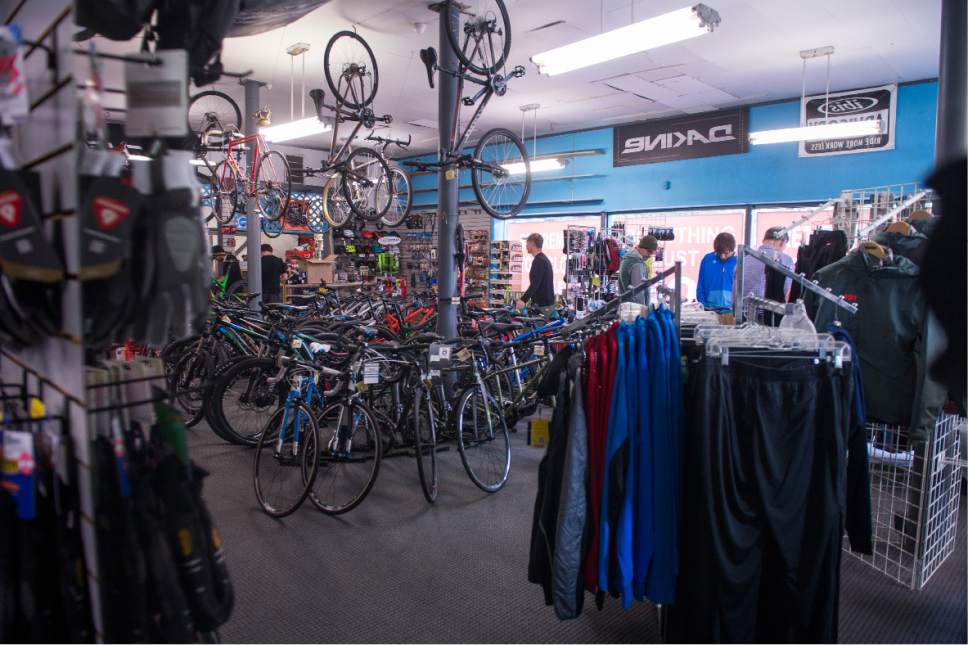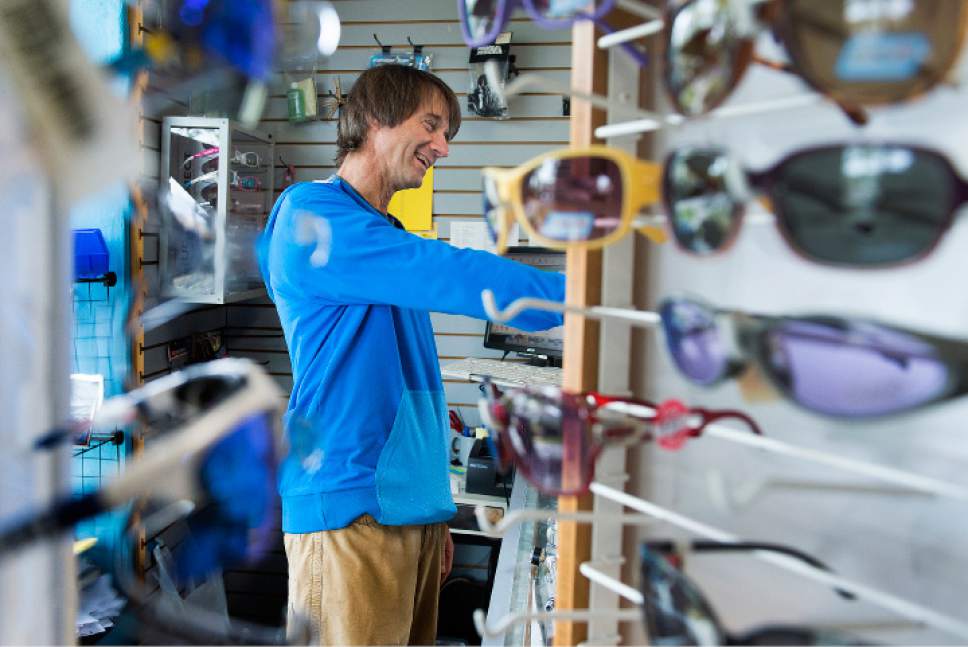This is an archived article that was published on sltrib.com in 2017, and information in the article may be outdated. It is provided only for personal research purposes and may not be reprinted.
Tim Metos never had a "grand plan" to run a mountain bike and Nordic skiing retail shop for 32 years.
But through his Wild Rose Sports, he established a niche in those ascendant sports and made his small business an endearing and heartily embraced neighbor in Salt Lake City's Avenues.
He's done so well on both fronts that he can afford to retire on his own terms — once he completes a closeout sale that starts Thursday at 10 a.m. in the store at 702 3rd Ave.
"I started with nothing, working six days a week, 70 hours a week," the 57-year-old said Wednesday as a couple of shoppers browsed and he gathered some high-quality waxes a regular customer in Colorado had ordered, knowing Wild Rose's days were numbered.
"It would take the same kind of effort to be viable going forward. I don't want to. I don't need to," he said. "I can explore other things. It's a very positive thing."
Maybe for him. Not so much for Roz Newmark, who observed, "I've known Timmy for about 30 years, ever since he opened down the street. … It sucks to see [Wild Rose] go.
"It's such a humane and accessible place," she elaborated. "It's an incredible luxury to rent skis or have your bike fixed here, to have access to high-quality outdoor equipment with competent and kind people to help you. There's an old-world quality that is lacking these days and going by the wayside."
Pointing to her 27-year-old Trek mountain bike parked outside the front door, she said, "They know its name — Speedy. They know I've toured all over Europe, the West Coast, across Kansas three times on that bike. Don't we all love that, where you have somebody in the neighborhood who is a friend and cares for what you do?"
Jim Kearns, who shopped at Wild Rose because it supported The Utah Nordic Alliance (TUNA), said, "There was a vibe in Wild Rose — casual, with dogs walking around. Whenever I'd walk in there, Tim was always superresponsive. There's nothing like going into a store like that, where you get the owners' treatment — and I know a lot of people felt like that."
Kind words such as those have touched Metos' heart since he started spreading the word of his impending retirement among longtime customers. Just the other day, a Norwegian — nicknamed Marius the Destroyer — sent an email thanking Metos for caring for his skis when he attended the University of Utah a couple of decades ago.
The business has changed markedly since Metos, a graduate of East High School and the U., first got involved — accidentally.
An avid cyclist "through my seven years of college," he went to a bicycle show in the mid-1980s and became enamored of a newly evolving discipline: mountain biking. He ordered a bike for a friend, then a few more, and a few more after that. Before long, "I had my life savings — which was not that significant — tied up in a little storage space with 15 mountain bikes. I had no choice but to continue."
Metos hooked up early with the late Richard Barnum-Reece, a Salt Lake City journalist who started a mountain biking magazine and race circuit.
"Right out of the gate, Wild Rose was the first sponsor" as it cultivated a clientele looking for high-performance gear, Metos said.
He took the same approach with Nordic skiing equipment, becoming one of the first shops to provide stone-grinding services to flatten skinny skis so they slide faster, and to stock almost every imaginable type of wax that elite cross-country racers need to trim seconds off their times.
"I've always been willing to try new things," he said, proud that his handiwork figured into the Paralympic cross-country skiing success of six-time medalist Steve Cook, who is among a throng of former Wild Rose employees, and the Olympic races of Ivan Babikov, a Russian who competed at the 2006 Turin Games.
That readiness to explore niche ways of making money helped Wild Rose survive the recent increased competition from online retailers and big-box sporting-goods stores.
"How do you make a profit when something is for sale cheaper online than you can buy it for?" he asked rhetorically, adding that it's especially a challenge in an urban area like Salt Lake City, where people can spend time to research and shop around for a good price, unlike a mountain town, where tourists want their stuff right away and willingly pay a little more.
Still, Metos said, "I harbor no grudge. The basic efficiency of delivering goods through a web platform will always win in the end. That's the bottom line. I see other retailers who are very angry. I'm less offended because I've managed to save enough money [that] I don't need to work."
So he won't — not much longer, anyway. He may hold onto his ski-tuning machines and mess with them at times. He's taken up woodworking, too. And he's going to keep promoting a program he and TUNA run to make Nordic skiing accessible to disadvantaged kids.
"That won't end when I end the business," Metos said, satisfied with the route he's taken.
"We all need to eat, but money has never been my primary focus or driver — ever," he said. "This business has treated me just fine. Things worked out."


